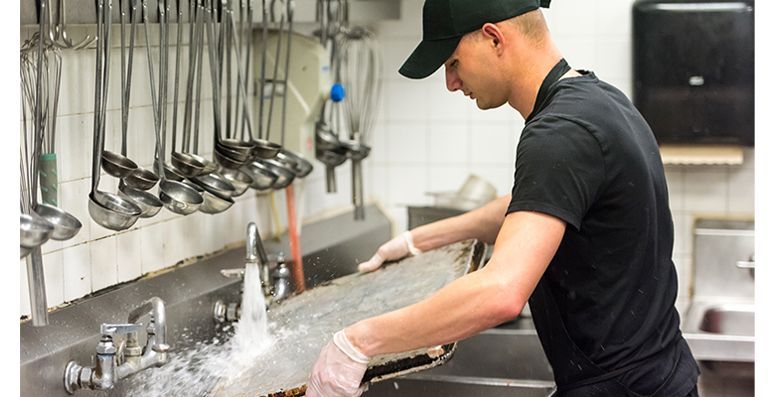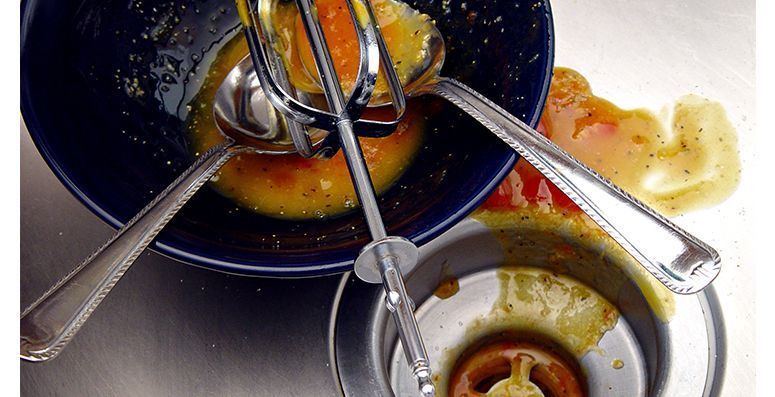Drain Management in the Catering Industry

Pouring fats, oils and grease (known as FOG) down the drain can have serious consequences. FOG causes blockages which can be expensive to remove and can damage drains and sewers.
In a busy kitchen, swilling FOG down the sink may seem the easiest solution but, when liquid fat reaches a cooler environment (like the drains) it hardens. The more FOG you put down your drain, the bigger the mass of solidified fat becomes. Left untreated, it forms what we call a ‘fatberg’: a huge wall of fat that can block an entire sewer. We should know: our engineers have tackled plenty.
There are over 360,000 sewer blockages in the UK each year and incorrect FOG disposal is one of the main contributory factors. Sewer blockages can also result in foul waste backing up into your premises, causing considerable business disruption whilst the incident is resolved.
Common ingredients that contain FOG
If you work in a catering environment, it’s important to know what FOG is and how to properly dispose of it. Common ingredients that contain FOG include dairy products such as cream, butter and margarine, lard, batter, salad dressings, meat fats, soups, oil, icing and sauces. Failure to dispose of FOG properly is against the law and may lead to prosecution and fines.
Check out our FREE downloadable drain management guide for the catering industry and help your staff to understand:
- the impact of improper FOG disposal
- the legal implications and regulations about FOG
- acceptable FOG disposal options

At Lanes, we provide all the services you need to manage your waste, including pre-planned maintenance agreements so that we carry out the work automatically for you.
For more information, call today on 0800 526 488: we will be happy to help.







